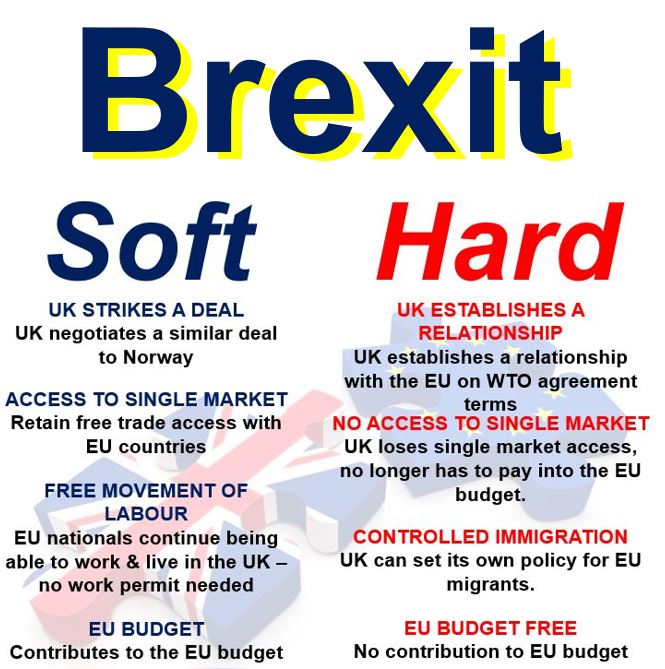Britain plans to become an independent member of the WTO (World Trade Organisation) after Brexit – when it leaves the European Union – Liam Fox, Secretary of State for International Trade and President of the Board of Trade, will announce next week, according to an article published today in the Sunday Telegraph, a British broadsheet newspaper.
According to the Telegraph report, which did not cite its source, Dr. Fox will use a speech at the WTO on 27th September to announce that the UK will seek to be an independent member of the body so that it can negotiate trade deals independently outside of the European Union (EU).
In a Referendum on 23rd June, 2016, a majority of voters chose to leave the European Union. Prime Minister Theresa May says she is committed to carrying out the electorate’s decision.
 By announcing that the UK aims to become an independent WTO member, Dr. Fox would be signalling that the Government is aiming for a ‘Hard Brexit’.
By announcing that the UK aims to become an independent WTO member, Dr. Fox would be signalling that the Government is aiming for a ‘Hard Brexit’.
WTO member means leaving EU customs union
For the United Kingdom to be an independent member of the WTO, it would have to leave the EU’s customs union, something Mrs. May’s government has been unclear about, regarding how or when.
The UK is currently unable to strike free trade agreements with other nations because it is an EU member state – the EU imposes common tariffs across the trading bloc. At the moment, Britain is represented by the EU in trade negotiations with the WTO.
The Government has not officially said what it plans to do – to remain part of the single European market, the customs union, or to break completely free from all the EU’s trade structures.
‘Dramatic Speech’ planned for WTO
According to the Telegraph, Dr. Fox will deliver a ‘dramatic speech’ next week at the WTO.
Recently, Dr. Fox said:
“Britain is going to be open for business like never before, and we will use our new-found position outside the EU to become the world’s brightest beacon and champion of open trade.”
 There are three types of Members of Parliament and voters in the UK: 1. Supporters of a Hard Brexit. 2. Those wanting a Soft Brexit. 3. The Remainers (they want to stay in the EU). The Referendum did not ask voters to specify hard or soft, so we do not really know what proportion of Leave voters want a total separation or a partial one.
There are three types of Members of Parliament and voters in the UK: 1. Supporters of a Hard Brexit. 2. Those wanting a Soft Brexit. 3. The Remainers (they want to stay in the EU). The Referendum did not ask voters to specify hard or soft, so we do not really know what proportion of Leave voters want a total separation or a partial one.
If the Telegraph’s predicted speech does occur on Tuesday, it will be a clear signal that the Government is preparing the ground for a ‘hard Brexit’ – breaking all ties with the EU.
The United Kingdom is the world’s fifth largest economy. It is in a powerful position to influence international policy post-Brexit, and usher in more trade-friendly rules, Dr. Fox believes.
Earlier this month, Dr. Fox said to a group of investors:
“One hundred and fifty years ago, the UK was the world’s biggest trading nation, and now we will lead the charge again for freer and fairer global trade.”
Government under pressure from US banks
Mrs. May came under intense pressure earlier this week from major American financial institutions. They said they need to know what is going to happen, whether the UK will retain passporting, whether it is aiming for a hard or soft Brexit, and when formal separation procedures – invoking Article 50 – will begin.
A Soft Brexit would mean Britain still having unfettered access to the EU market, passporting rights, but it would have to sign up to the free movement of people.
Passporting refers to exercising the right for a company registered in the European Economic Area (EEA) to do business in any other EEA nation without having to request further authorization from the country. It is a kind of ‘passport’ that financial institutions are granted to do business across the whole of Europe.
If the Government does not set out its plans clearly, the American banks warned that they may move thousands of jobs out of London and into an EU member state. Potentially, 80,000 extremely well-paid jobs could be gone from London.
Video – Soft or Hard Brexit?
What is the difference between hard or soft Brexit? Basically, hard Brexit means making a clean break from the EU – total separation, while a soft Brexit suggests the UK would ‘kind of leave’ the EU but keep some of its features.
Video – What is International Trade
The term ‘international trade’ refers to trade between countries, i.e., nations buying and selling things from/to one another.

